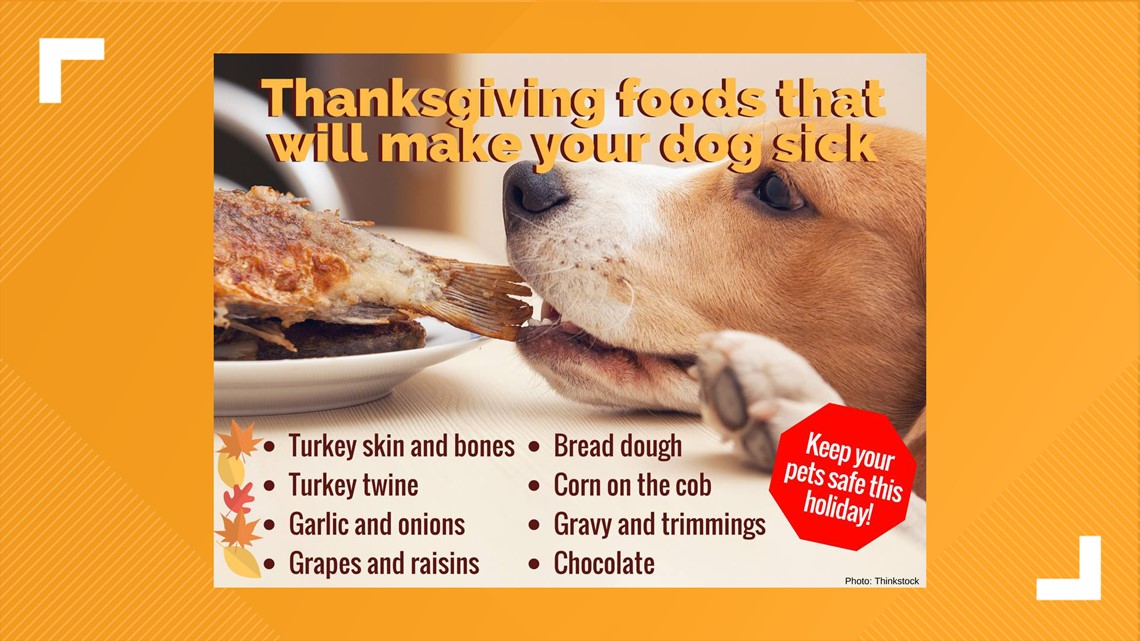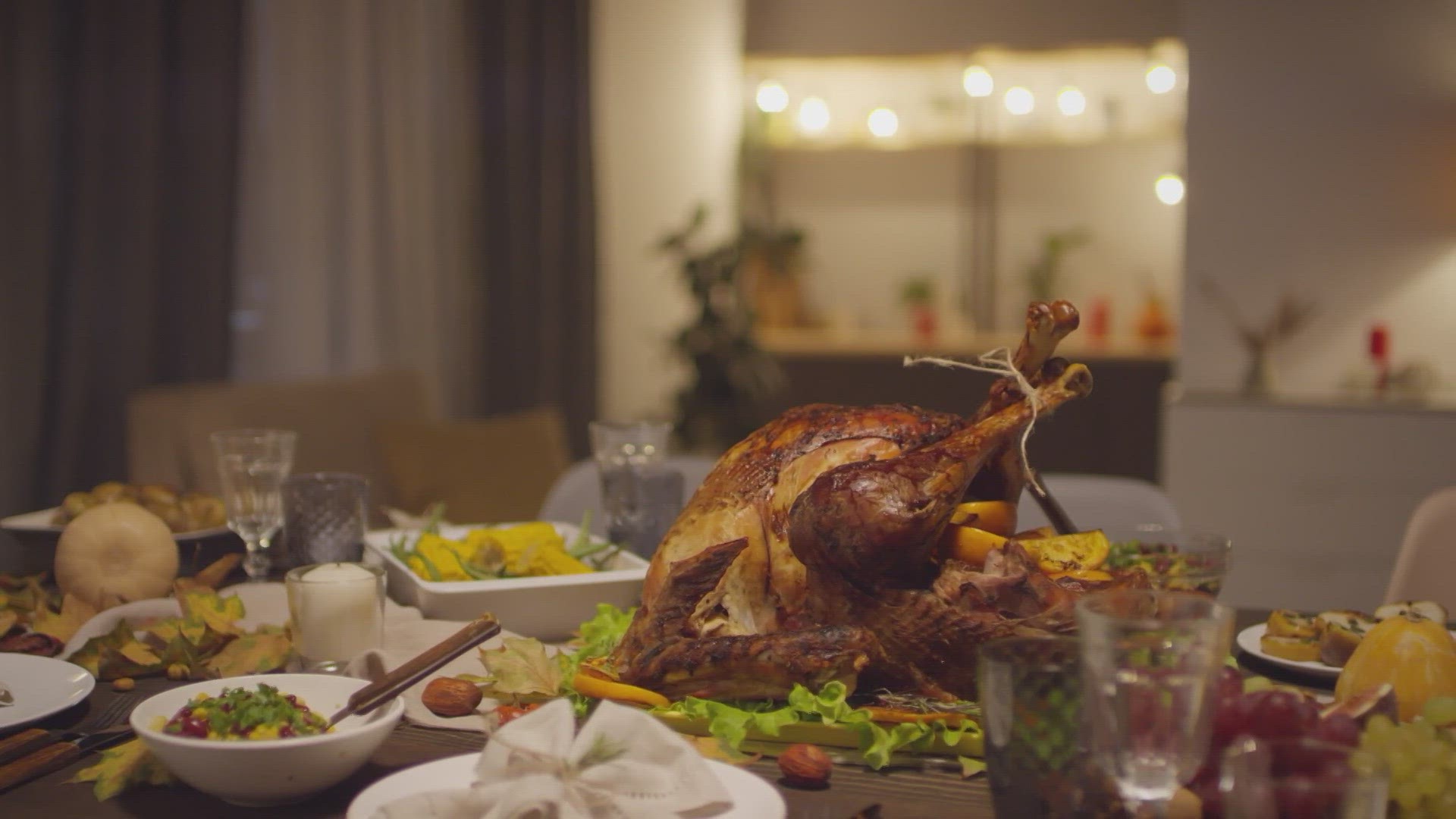HOUSTON — HUNTSVILLE, Ala. – That sweet face, those big eyes, the tilt of the head. Sometimes, it’s hard to say no to dogs hoping for a little nibble of whatever you’re eating.
But those traditional Thanksgiving meals are full of foods that can be harmful to your furbabies.
Dr. Kaisha Pritchett of Animal Emergency and Critical Care said the number one emergency situation they see is owners giving their dogs leftover bones such as ham bones, turkey bones, chicken bones, etc.
“People like to give them to their pets to gnaw on, chicken bones, turkey bones, things like that and they can have issues and accidentally ingest them and have issues,” she said.
The bones can obstruct the animal’s airway causing breathing complications. It also causes digestive problems as well.
Make sure you don't throw them away anywhere that your dog can get to.
Turkey skin and twine can also harm your four-legged friend.
Here’s a list of other foods that could be dangerous for your dog, according to the ASPCA.
- Grapes, raisins
- Onions
- Garlic
- Gravy
- Chocolate
- Avocado
- Corn on the cob
- Macadamia nuts
- Other nuts, including almonds, pecans and walnuts
- Bread dough
- Salt
- Sage
- Xylitol sweetener
If your dog eats something potentially toxic, call your vet for advice.
“A lot of times, if it’s pretty early on we can make them vomit it up and then give them activated charcoal to prevent it from being absorbed,” Dr. Pritchett said. “But if it’s been a longer amount of time, say more than 4 hours or so, then it will require hospitalization and fluid therapy and monitor any seizures or any toxicity that way.”
There are a few foods on many Thanksgiving tables that are safe for your pets, before you add seasoning or butter. They include: pumpkin; sweet potatoes; carrots; green beans; and cranberries.
During the holidays, it’s common for family and friends to visit.
Always ask guests not to feed your pets.


The American Veterinary Medical Association offers other advice when company is coming:
- Visitors can upset your pets. Some pets are shy or excitable around new people or in crowds, and Thanksgiving often means many visitors at once and higher-than-usual noise and activity levels. If you know your dog or cat is nervous when people visit your home, put him/her in another room or a crate with food, water and a favorite toy. This will reduce the emotional stress on your pet and protect your guests from possible injury. If your pet is particularly upset by houseguests, talk to your veterinarian about possible solutions to this common problem.
- Watch the exits. Even if your pets are comfortable around guests, make sure you watch them closely, especially when people are entering or leaving your home. While you’re welcoming hungry guests and collecting coats, a four-legged family member may make a break for it out the door and become lost.
- Identification tags and microchips reunite families. Make sure your pet has proper identification with your current contact information – particularly a microchip with up-to-date, registered information. That way, if they do sneak out, they’re more likely to be returned to you. If your pet isn’t already microchipped, talk to your veterinarian about the benefits of this simple procedure.
- Watch your pets around festive decorations. Special holiday displays or candles are attractive to pets as well as people. Never leave a pet alone in an area with a lit candle; it could result in a fire. And pine cones, needles and other decorations can cause intestinal blockages or even perforate an animal’s intestine if eaten.
Animal experts recommend keeping this list of important numbers around for emergency situations:
ASPCA National Animal Poison Control Center: 1-(888) 426-4435
Costs $65.00 per case
Animal Poison Hotline: 1-888-232-8870
Costs $35.00 per case

